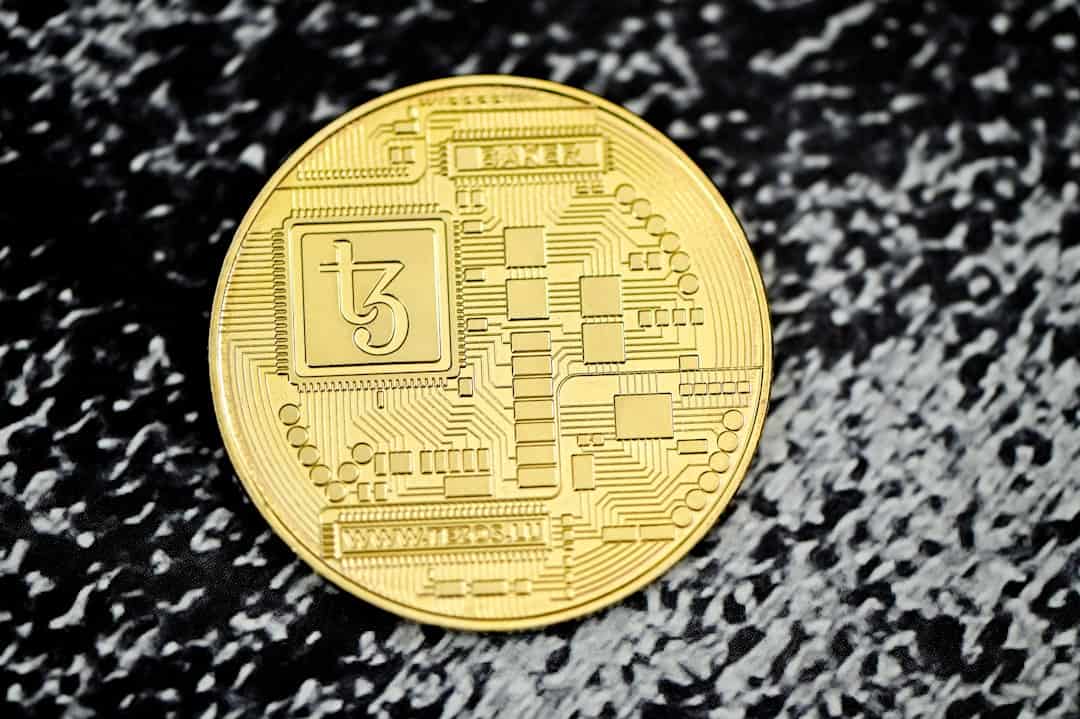The intersection of biotechnology and blockchain technology represents a frontier of innovation that holds the potential to revolutionize various sectors, particularly healthcare. Biotechnology, which encompasses a range of techniques and processes that utilize living organisms or their components to develop products and technologies, has made significant strides in recent years. From gene editing to personalized medicine, biotech is reshaping our understanding of health and disease.
On the other hand, blockchain technology, characterized by its decentralized and immutable ledger system, offers a new paradigm for data management and security. The combination of these two fields could lead to enhanced data integrity, transparency, and security in managing sensitive health information. As healthcare increasingly relies on digital systems for storing and sharing patient data, the need for robust security measures has never been more critical.
The integration of blockchain with biotech can provide a solution to these challenges by ensuring that patient data is not only secure but also accessible to authorized parties in a transparent manner. This synergy could pave the way for more efficient clinical trials, improved patient outcomes, and a more trustworthy healthcare ecosystem.
Key Takeaways
- Biotech and blockchain are two innovative technologies that are revolutionizing data security in the healthcare industry.
- Securing patient data is crucial for maintaining privacy and preventing unauthorized access to sensitive information.
- Biotech plays a key role in data security by developing advanced encryption and authentication methods to protect patient data.
- Blockchain technology provides a decentralized and tamper-proof system for storing and managing patient data, ensuring its integrity and security.
- Biotech and blockchain work together to create a robust and secure environment for managing patient data, offering benefits such as improved transparency and traceability.
The Importance of Securing Patient Data
In an era where data breaches are alarmingly common, securing patient data has become a paramount concern for healthcare providers, patients, and regulatory bodies alike. The healthcare sector is particularly vulnerable due to the sensitive nature of the information it handles, which includes personal identification details, medical histories, and treatment plans. A breach of this data can lead to identity theft, financial fraud, and significant harm to patients’ reputations and well-being.
Moreover, the implications extend beyond individual patients; healthcare organizations can face severe financial penalties, loss of trust, and damage to their reputations. The importance of securing patient data is underscored by regulations such as the Health Insurance Portability and Accountability Act (HIPAA) in the United States, which mandates strict guidelines for protecting health information. Compliance with such regulations is not merely a legal obligation but also a moral imperative for healthcare providers.
Patients must feel confident that their data is being handled with care and respect. As technology continues to evolve, so too do the methods employed by cybercriminals, making it essential for healthcare organizations to adopt advanced security measures that can adapt to emerging threats.
The Role of Biotech in Data Security

Biotechnology plays a crucial role in enhancing data security within the healthcare sector through various innovative approaches. One significant aspect is the development of biometrics—unique biological characteristics such as fingerprints, facial recognition, and retinal scans—that can be used for authentication purposes. By leveraging these biological markers, healthcare organizations can ensure that only authorized personnel have access to sensitive patient data.
This not only enhances security but also streamlines the process of accessing medical records, reducing the risk of human error associated with traditional password systems. Furthermore, biotech innovations such as gene therapy and synthetic biology can contribute to data security by creating more resilient systems for storing and processing information. For instance, researchers are exploring the use of DNA as a storage medium for digital data due to its high density and stability over time.
This approach could revolutionize how we think about data storage, making it more secure against physical damage or cyberattacks. By integrating biotech solutions into data management practices, healthcare organizations can create a multi-layered security framework that addresses both physical and digital vulnerabilities.
The Role of Blockchain in Data Security
Blockchain technology offers a transformative approach to data security by providing a decentralized and tamper-proof system for recording transactions. Each block in a blockchain contains a cryptographic hash of the previous block, along with a timestamp and transaction data, creating an immutable chain that is resistant to alteration. This characteristic makes blockchain particularly well-suited for managing sensitive patient data, as it ensures that once information is recorded, it cannot be changed or deleted without consensus from the network participants.
Moreover, blockchain’s transparency allows for real-time auditing of data access and modifications. Every transaction is visible to all authorized users within the network, creating an environment of accountability that deters malicious activities. In healthcare, this means that any access to patient records can be tracked and verified, providing an additional layer of security against unauthorized access.
Furthermore, smart contracts—self-executing contracts with the terms directly written into code—can automate processes such as patient consent for data sharing, ensuring compliance with regulations while enhancing efficiency.
How Biotech and Blockchain Work Together
The collaboration between biotech and blockchain can create a robust framework for securing patient data that leverages the strengths of both fields. For instance, biometric authentication methods can be integrated with blockchain systems to ensure that only verified individuals can access sensitive information. By combining biometric data with blockchain’s immutable ledger, healthcare organizations can create a secure environment where patient identities are protected while allowing seamless access to their medical records.
Additionally, blockchain can facilitate secure sharing of genomic data among researchers while maintaining patient privacy. Biotech advancements in genomics have led to vast amounts of sensitive genetic information being generated; however, sharing this data poses significant privacy risks. By utilizing blockchain technology, researchers can share genomic data in a way that ensures patient anonymity while still allowing for valuable insights to be gained from collective datasets.
This synergy not only enhances data security but also accelerates research efforts in personalized medicine and other areas.
Benefits of Using Biotech and Blockchain for Patient Data Security

The integration of biotech and blockchain technologies offers numerous benefits for securing patient data. One of the most significant advantages is enhanced security through decentralization. Unlike traditional centralized databases that are vulnerable to single points of failure or targeted attacks, blockchain’s distributed nature means that even if one node is compromised, the integrity of the entire system remains intact.
This resilience is crucial in protecting sensitive health information from cyber threats. Another benefit is improved patient control over their own data. With blockchain technology, patients can have greater autonomy regarding who accesses their medical records and under what circumstances.
This empowerment fosters trust between patients and healthcare providers, as individuals can monitor their own data usage through transparent blockchain records. Furthermore, this level of control aligns with evolving regulatory frameworks that emphasize patient rights over their health information.
Challenges and Limitations of Biotech and Blockchain in Data Security
Despite the promising potential of biotech and blockchain in enhancing patient data security, several challenges and limitations must be addressed before widespread adoption can occur. One significant hurdle is the interoperability between different systems and platforms within the healthcare ecosystem. Many healthcare organizations utilize legacy systems that may not easily integrate with new technologies like blockchain or biometric solutions.
Achieving seamless interoperability will require substantial investment in infrastructure upgrades and standardization efforts across the industry.
While biometrics can enhance security, they also raise questions about consent and the potential for misuse or unauthorized access to sensitive personal information.
Striking a balance between security measures and individual privacy rights will be essential as healthcare organizations navigate these complex issues.
Future Implications of Biotech and Blockchain for Patient Data Security
Looking ahead, the future implications of integrating biotech and blockchain technologies for patient data security are profound. As both fields continue to evolve, we may witness the emergence of more sophisticated solutions that further enhance data protection while promoting innovation in healthcare delivery. For instance, advancements in artificial intelligence (AI) could complement these technologies by providing predictive analytics that identify potential security threats before they materialize.
Moreover, as public awareness regarding data privacy grows, patients may increasingly demand greater control over their health information. This shift could drive healthcare organizations to adopt more transparent practices facilitated by blockchain technology while leveraging biotech innovations to ensure secure access to sensitive data. Ultimately, the collaboration between biotech and blockchain has the potential not only to safeguard patient information but also to foster a more efficient and trustworthy healthcare system that prioritizes patient rights and safety above all else.
A related article discussing the latest trends predicted for 2023 can be found here. This article explores the advancements and innovations expected to shape the future of technology and healthcare, including the integration of biotech and blockchain to secure patient data. It provides valuable insights into the potential impact of these technologies on the healthcare industry and how they can revolutionize the way patient information is stored and protected.
FAQs
What is biotech?
Biotech, short for biotechnology, is the use of living systems and organisms to develop or make products. This can involve the manipulation of biological processes for various applications such as medicine, agriculture, and environmental sustainability.
What is blockchain?
Blockchain is a decentralized, distributed ledger technology that records transactions across multiple computers in such a way that the recorded data cannot be altered retroactively. It is most commonly known for its use in cryptocurrencies, but has potential applications in various industries.
How do biotech and blockchain combine to secure patient data?
Biotech and blockchain can be combined to secure patient data by using biometric authentication to link a patient’s unique biological characteristics to their medical records, and then storing this information on a blockchain. This ensures that patient data is secure, tamper-proof, and easily accessible when needed.
What are the benefits of combining biotech and blockchain for securing patient data?
Combining biotech and blockchain for securing patient data offers benefits such as enhanced security and privacy, reduced risk of data breaches, improved interoperability of medical records, and increased trust and transparency in the healthcare system.
Are there any challenges or limitations to using biotech and blockchain for securing patient data?
Challenges and limitations to using biotech and blockchain for securing patient data may include regulatory hurdles, technical complexities, potential privacy concerns, and the need for widespread adoption and standardization within the healthcare industry.

